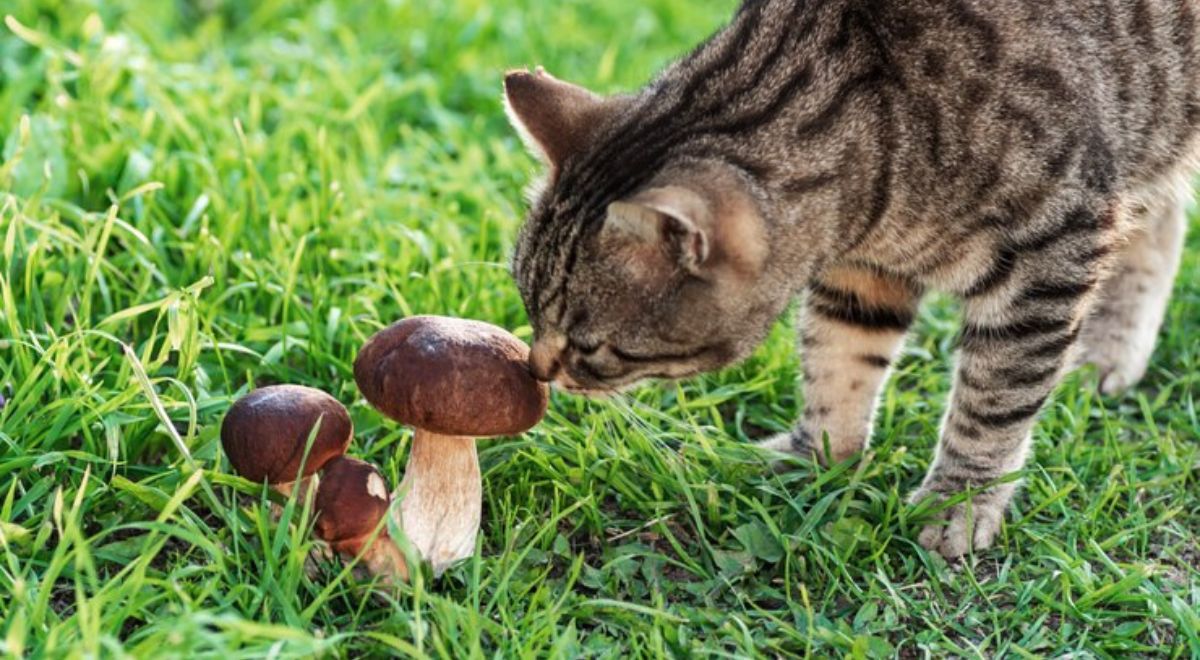Can Cats Eat Mushrooms? A Feline Fungus Guide
Can cats eat mushrooms?
Curious about those pleading eyes when you’re preparing a mushroom dish? You might wonder, “Can cats eat mushrooms?” Yes, cats can eat mushrooms in moderation, but only if they are commercially grown and well-cooked. Let’s delve into the world of mushrooms and feline safety.
Can Cats Eat Cooked Mushrooms?
Commercially available, cultivated mushrooms like white button, portobello, or cremini are generally considered safe for cats in very small quantities. These mushrooms have been bred for human consumption and lack the potent toxins found in wild varieties. However, it’s important to remember that cats are obligate carnivores, meaning their digestive systems are designed to process meat-based proteins. Mushrooms offer little nutritional value for cats and can even cause stomach upset in some felines. It’s best to consult your veterinarian before introducing any new food to your cat’s diet, including mushrooms.
Do Mushrooms Pose a Threat to Cats?
Absolutely. The biggest concern lies with wild mushrooms. There are thousands of mushroom species, and many are highly toxic, even fatal if ingested by cats. These toxins can cause a range of symptoms, including vomiting, diarrhea, lethargy, seizures, and liver damage.
What is Mushroom Poisoning?
Mushroom poisoning, or mycotoxin poisoning, occurs when an animal or human consumes a mushroom containing harmful toxins. Symptoms can vary depending on the specific type of mushroom ingested, but often include gastrointestinal distress, organ damage, and neurological problems. If you suspect your cat has eaten a wild mushroom, seek immediate veterinary attention.
Do Cats Like Mushrooms?
Some cats might find the earthy or savory taste of mushrooms appealing. However, this isn’t a universal feline fancy. Their natural prey doesn’t include fungi, so a taste for mushrooms isn’t instinctive.

Here are some safer alternatives to satisfy your cat’s curious cravings:
Commercial cat treats: Many commercially available cat treats are formulated with enticing flavors and textures that are safe and beneficial for your feline friend.
Catnip: This natural herb is a well-known feline attractant and provides a safe and stimulating treat.
Cooked, shredded chicken or tuna: A small amount of cooked, unseasoned chicken or tuna can be a delicious and healthy treat for your cat.
Conclusion
While some cultivated mushrooms might be safe for cats in tiny portions, it’s always best to err on the side of caution. There’s no nutritional benefit for cats, and the risk of poisoning from wild mushrooms is too high. If you’re unsure, consult your veterinarian for guidance.
FAQs
1. Can I share my button mushrooms with my cat?
Consult your veterinarian first. A tiny, cooked piece might be okay, but it’s best to avoid it altogether.
2. My cat ate a wild mushroom! What should I do?
Seek immediate veterinary attention. Early intervention is crucial in cases of mushroom poisoning.
3. Are there any safe mushrooms for cats?
There’s no guarantee of safety with any mushroom. It’s always best to avoid them altogether.
4. My cat seems interested in my mushrooms. What can I offer instead?
Provide catnip, commercial cat treats, or a small amount of cooked unseasoned chicken or tuna.
5. How can I prevent my cat from eating mushrooms?
Keep wild mushrooms out of your yard and supervise your cat when outdoors.


